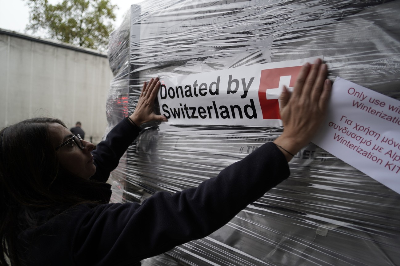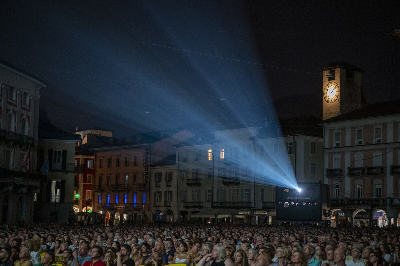
© https://www.swissinfo.ch
Федеральна рада Швейцарії анонсувала суттєвий перегляд державного фінансування культурних ініціатив. Уже з 2025 року бюджет програми культурної співпраці скорочено на 45 %, до 2 млн франків на рік, а з 2029-го повністю припинено підтримку великих культурних платформ, серед яких Locarno Film Festival, Visions du Réel, Zürcher Theater Spektakel та ін. Ці зміни поставили під загрозу культурні програми, завдяки яким до Швейцарії приїжджали митці з Африки, Латинської Америки, Азії та Східної Європи. У пресрелізі об’єднані фестивалі попереджають про можливість «радикального зниження культурної різноманітності» — багато проектів можуть бути закриті або значно обмежені. Уряд пояснює: зменшення фінансування — частина економії в рамках стратегії міжнародної співпраці 2025–2028 років. Кошти перенаправляються до важливіших напрямів, зокрема гуманітарної допомоги та відновлення України. Зокрема, з 2025 року вже було скорочено бюджет на міжнародну співпрацю на 110 млн, а на 2026–2028 роки — на 321 млн франків. Як це коментують професіонали?
-
Філіп Кліваз, директор фестивалю FIFF, наголошує: «45 % фінансування — це частина бюджету, але його втрата означає дефіцит у 10 % діяльності нашого заходу… нам доведеться радикально змінювати формат або скоротити програму».
-
Раель Лойпін, керівниця Artlink, заявляє: «Культура — це ключовий інструмент розвитку. У репресивних системах саме культурні простори залишаються останнім острівцем свободи».
-
Зсузсі Банкуті, очільниця Open Doors (Locarno): «Ми змушені скасувати підтримку 60 режисерів на рік, скоротити участь у програмі на 25 %, витрати на поїздки для митеців із Глобального Півдня зменшити на 50 % — це безпосередньо вдарить по культурній різноманітності».
Представники Федерального департаменту закордонних справ (DDC) пояснюють: «коли бюджет зменшується — доводиться визначати пріоритети. Через це деякі організації більше не отримуватимуть підтримку». Цю ситуацію називають сигналом для швейцарської культурної спільноти: час надій із минулого завершено. Необхідно шукати нові моделі співфінансування, в тому числі з приватного сектору, або налагоджувати альтернативні шляхи для підтримки творчості — як внутрішні, так і міжнародні.
Why Switzerland Is Cutting Funding for Cultural Events
The Swiss Federal Council has announced a significant revision of state funding for cultural initiatives. Starting in 2025, the budget for the cultural cooperation program will be reduced by 45%, down to 2 million Swiss francs per year, and from 2029, support for major cultural platforms such as the Locarno Film Festival, Visions du Réel, Zürcher Theater Spektakel, and others will be completely discontinued. These changes threaten cultural programs that have brought artists from Africa, Latin America, Asia, and Eastern Europe to Switzerland. In a press release, the united festivals warn of a potential “radical decline in cultural diversity” — many projects may be closed or significantly limited. The government explains that the funding cuts are part of cost-saving measures within the framework of the 2025–2028 international cooperation strategy. Funds are being redirected to more critical areas, including humanitarian aid and the reconstruction of Ukraine. Specifically, from 2025, the international cooperation budget has already been cut by 110 million francs, and by 321 million francs for the years 2026–2028.
How professionals comment on this:
Philippe Clivaz, director of the FIFF festival, emphasizes: “45% of funding is a part of the budget, but losing it means a 10% deficit in our event’s activities… we will have to radically change the format or reduce the program.”
Rael Loipin, head of Artlink, states: “Culture is a key tool for development. In repressive systems, cultural spaces remain the last island of freedom.”
Zsuzsi Bankuti, head of Open Doors (Locarno), says: “We are forced to cancel support for 60 directors per year, reduce participation in the program by 25%, and cut travel expenses for artists from the Global South by 50% — this will directly impact cultural diversity.”
Representatives of the Federal Department of Foreign Affairs (DDC) explain: “When the budget decreases, priorities must be set. Because of this, some organizations will no longer receive support.” This situation is called a signal for the Swiss cultural community: the era of relying on past support is over. New co-funding models must be sought, including from the private sector, or alternative ways to support creativity — both domestic and international — need to be established.

©
4171